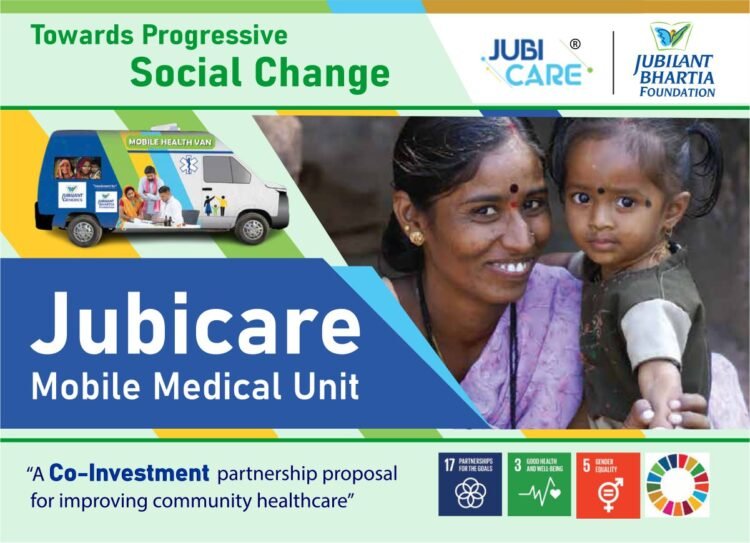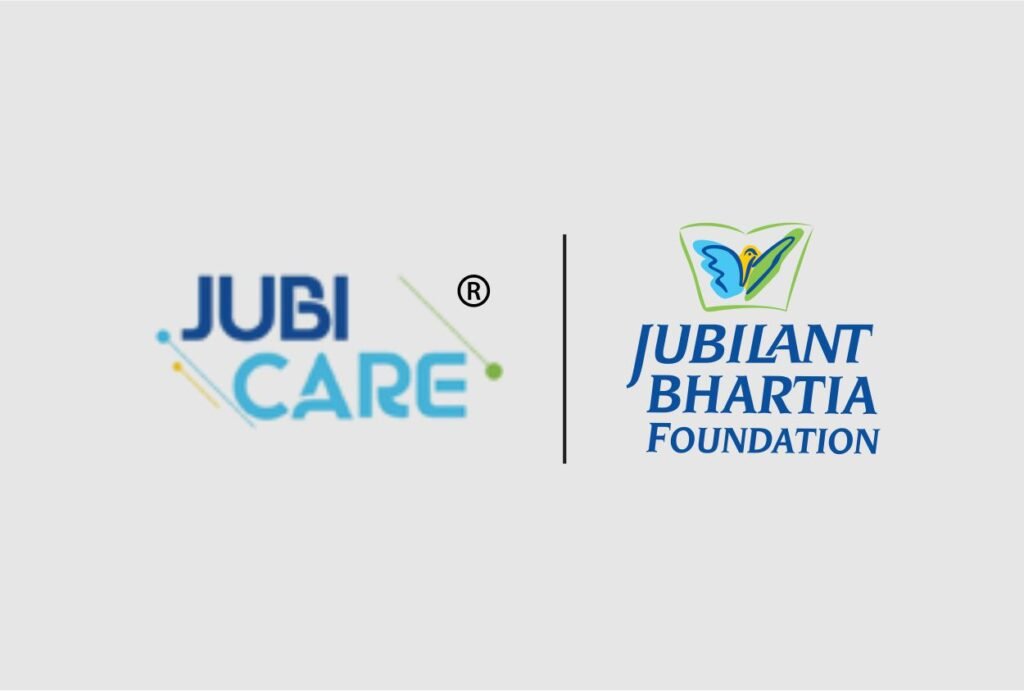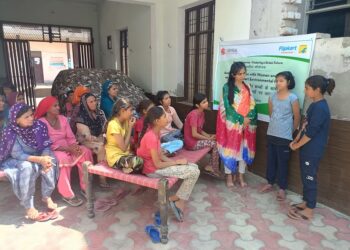Dive into the world of ‘Jubicare’, a revolutionary Mobile Medical Unit that stands as a beacon in Community Healthcare CSR projects; let’s unravel its journey and uncover the seven transformative benefits it brings to the community.
India has one of the vastest healthcare systems in the world, but there remain many disparities in the quality and access of healthcare services in urban and rural areas. Rural areas often suffer from the lack of basic health infrastructure, qualified doctors, and affordable medicines. The Covid-19 pandemic has further exacerbated the challenges faced by the rural and underprivileged communities.
To address this gap, Jubilant Bhartia Foundation, a philanthropic or CSR arm of Jubilant Bhartia Group, has launched a mobile medical unit ‘Jubicare’ to cater to a larger section of society. Jubicare is a fully equipped mobile medical van that provides improved accessibility, affordability, inclusiveness and awareness of healthcare services to 15-18 villages of desired location.
Companies, particularly those with a focus on corporate social responsibility (CSR) socially larger corporates including PSUs, can sponsor mobile medical units as part of their community outreach programs.
Jubicare is aligned with the Sustainable Development Goals (SDGs) 3, 5, and 17, which focus on good health and well-being, gender equality, and partnership for the goals. The project aims to complement and supplement the efforts of the government and civil society in providing primary healthcare services to rural and underprivileged communities under the corporate CSR project.
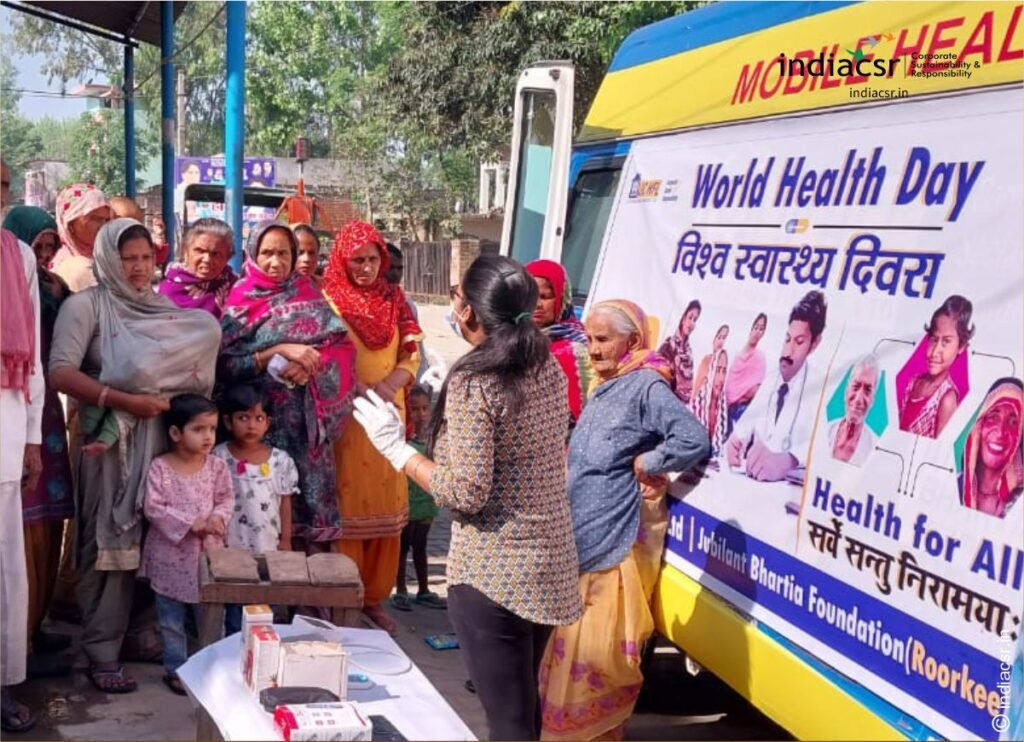
How Jubicare Works?
Jubicare works on a simple yet effective model that involves the following steps:
Baseline Survey and Need Analysis
The project team conducts a baseline survey and need analysis of the selected villages to understand their demographic profile, health status, health-seeking behaviour, availability of health facilities, and gaps and challenges in accessing healthcare services.
Stakeholder Engagement
The project team engages with various stakeholders such as village panchayats, ASHA workers, health department officials, project beneficiaries, external partners, government agencies, and technology partners to ensure their participation and support for the project.
Route Mapping
The project team maps out the route and schedule of the mobile medical van based on the needs and preferences of the beneficiaries. The van visits each village at least once a week and provides free consultation, diagnosis, medicine, and referral services to the patients.
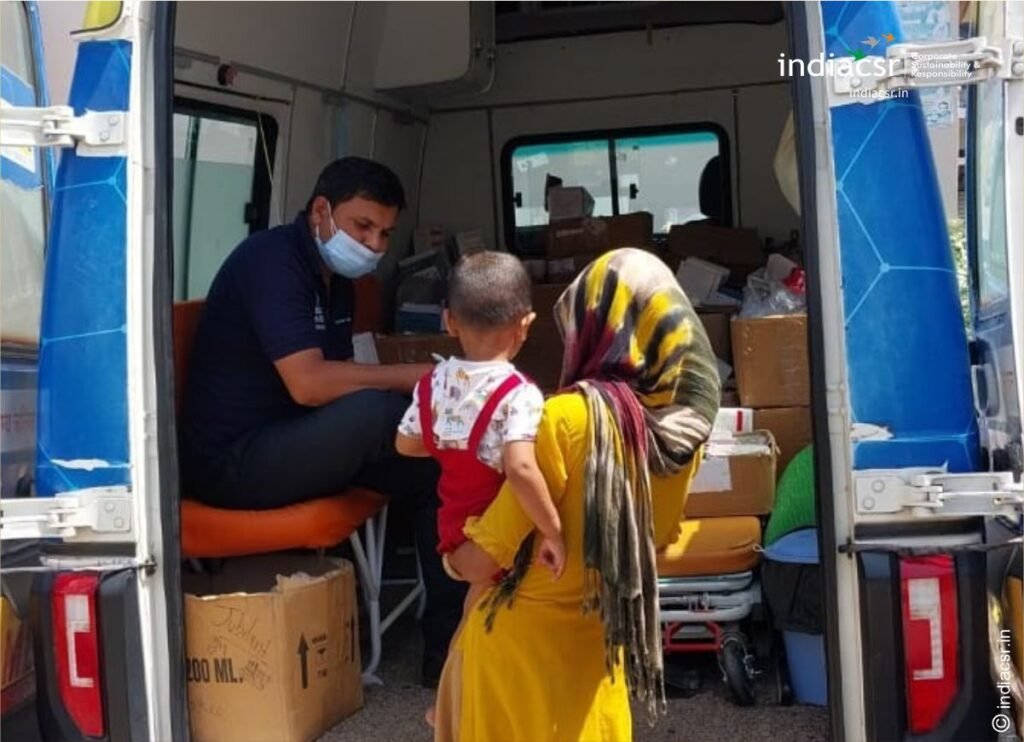
Periodic Data
The project team collects and analyses periodic data on the number of patients, types of diseases, medicines dispensed, referrals made, feedback received, and the impact achieved by the mobile medical van. The data is managed through a real-time health data management system that allows the project team and partners to monitor and evaluate the project’s performance.
Specialised Camps (Need-Based)
The project team organises specialised camps on need-based topics such as maternal and child health, family planning, communicable diseases, nutrition, hygiene, etc. The camps are conducted with the help of experts from partner organisations or government agencies.
Review with Partner
The project team conducts regular reviews with partner organisations or government agencies to share the progress and challenges of the project, seek their feedback and guidance, and explore opportunities for collaboration and scaling up.
Jubicare: 7 Benefits and Features Explained
Jubicare – a wonderful CSR project offers several benefits to the beneficiaries and stakeholders involved in the project. Some of these benefits are:
Improved accessibility
Jubicare provides improved accessibility to healthcare services to the rural and underprivileged communities who otherwise have to travel long distances or incur high costs to avail health facilities. Jubicare also integrates patients into existing social services and health care systems through referrals.
Improved affordability
Jubicare, which is a versatile CSR initiative, provides free or subsidised healthcare services to beneficiaries who otherwise have to bear high out-of-pocket expenses or fall into poverty due to health shocks. Jubicare also reduces the indirect costs of transportation, loss of wages, or opportunity costs for the beneficiaries.
Improved inclusiveness
Jubicare provides inclusive healthcare services to all segments of society irrespective of caste, creed, gender, religion, or disability. Jubicare also leverages technology to provide accessible, affordable, and acceptable delivery of healthcare services to the targeted beneficiaries, including persons with disabilities (PWDs).
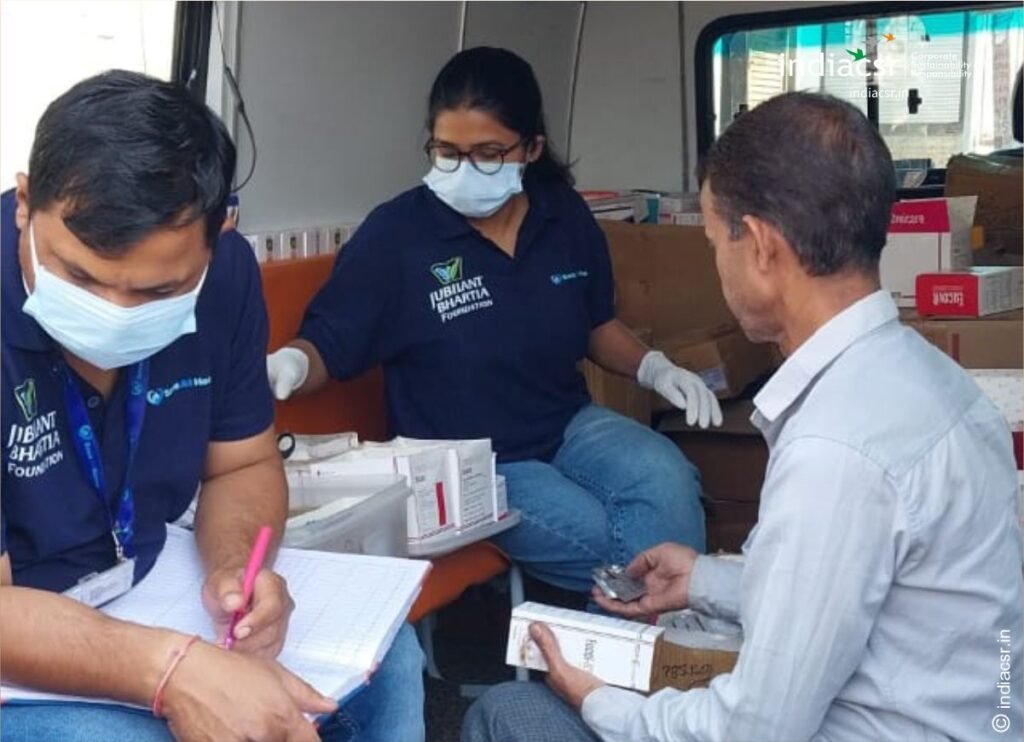
Improved awareness
Jubicare provides improved awareness about preventive healthcare issues such as family planning, communicable and other diseases, in the villages. Jubicare also raises awareness about the rights and entitlements of the beneficiaries under various government schemes and programs.
Improved quality
Jubicare provides improved quality of healthcare services by ensuring that the mobile medical van is fully equipped with necessary equipment, medicines, and staff. Jubicare also ensures that the staff is professionally trained, qualified, and courteous. Jubicare also follows standard operating procedures, guidelines, and protocols for delivering healthcare services.
Improved impact
Jubicare provides improved impact on the health outcomes and well-being of the beneficiaries by addressing their immediate and long-term health needs. Jubicare also measures and reports its impact on various indicators such as morbidity, mortality, immunisation, antenatal care, etc. Jubicare also strives to achieve the SDGs related to health and well-being.
Improved partnership
Jubicare provides improved partnership among various stakeholders such as government, civil society, corporate sector, and beneficiaries. Jubicare also fosters a culture of trust, dialogue, feedback, learning, and co-creation among all parties. Jubicare also leverages the strengths and resources of each partner to achieve greater impact and scale.
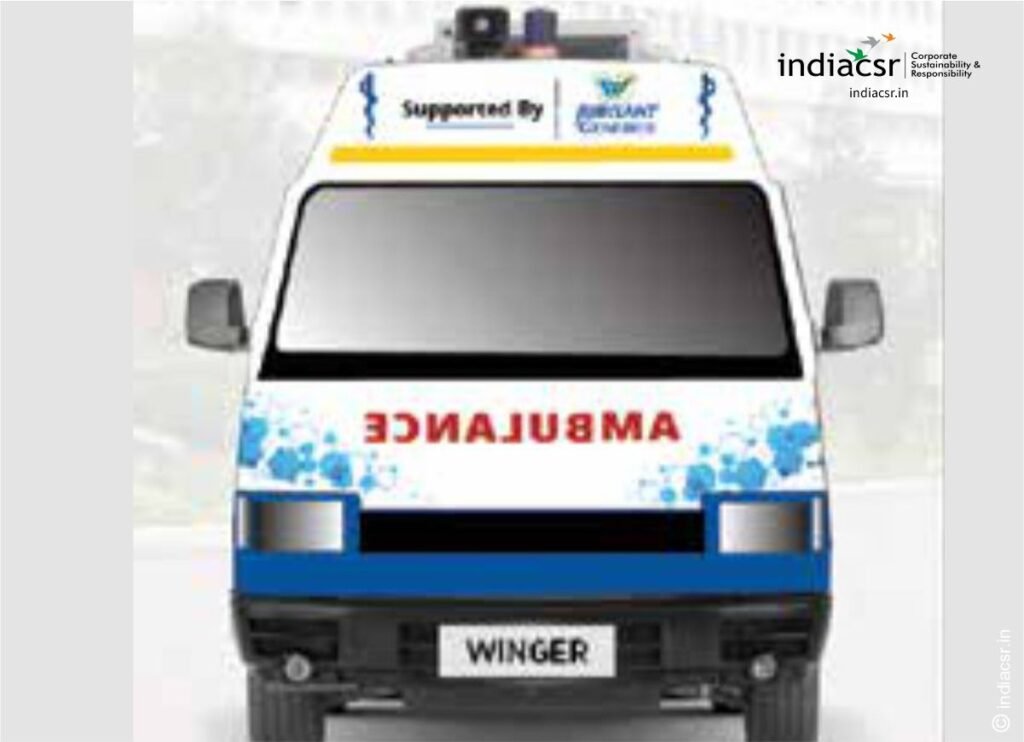
How Jubicare is a Revolutionary CSR Project for the Community Healthcare
Jubicare is a revolutionary CSR project for the healthcare sector in India because it addresses one of the most critical and challenging issues faced by the country, which is the lack of access and quality of healthcare services in rural and underprivileged areas.
Jubicare also demonstrates the commitment and vision of Jubilant Bhartia Foundation to provide innovative and inclusive solutions for social development. Jubicare also showcases the potential and role of CSR in complementing and supplementing the efforts of the government and civil society in achieving the SDGs through CSR and Corporate Partnerships.
Jubicare is a model that can be replicated and scaled up by other corporate or social organisations that wish to contribute to the healthcare sector in India under CSR provision. Jubicare is also a platform that can be leveraged to provide other services or interventions related to health or other sectors. Jubicare is also a catalyst that can inspire and motivate other stakeholders to join hands and work together for the common good of society.
Contact Details
A partnership proposal can be sent to biz@indiacsr.in
Visit for more detail: Jubicare – A Revolutionary CSR Project For Community The Healthcare
(India CSR)
📢 Partner with India CSR
Are you looking to publish high-quality blogs or insert relevant backlinks on a leading CSR and sustainability platform? India CSR welcomes business and corporate partnership proposals for guest posting, sponsored content, and contextual link insertions in existing or new articles. Reach our highly engaged audience of business leaders, CSR professionals, NGOs, and policy influencers.
📩 Contact us at: biz@indiacsr.in
🌐 Visit: www.indiacsr.in
Let’s collaborate to amplify your brand’s impact in the CSR and ESG ecosystem.


